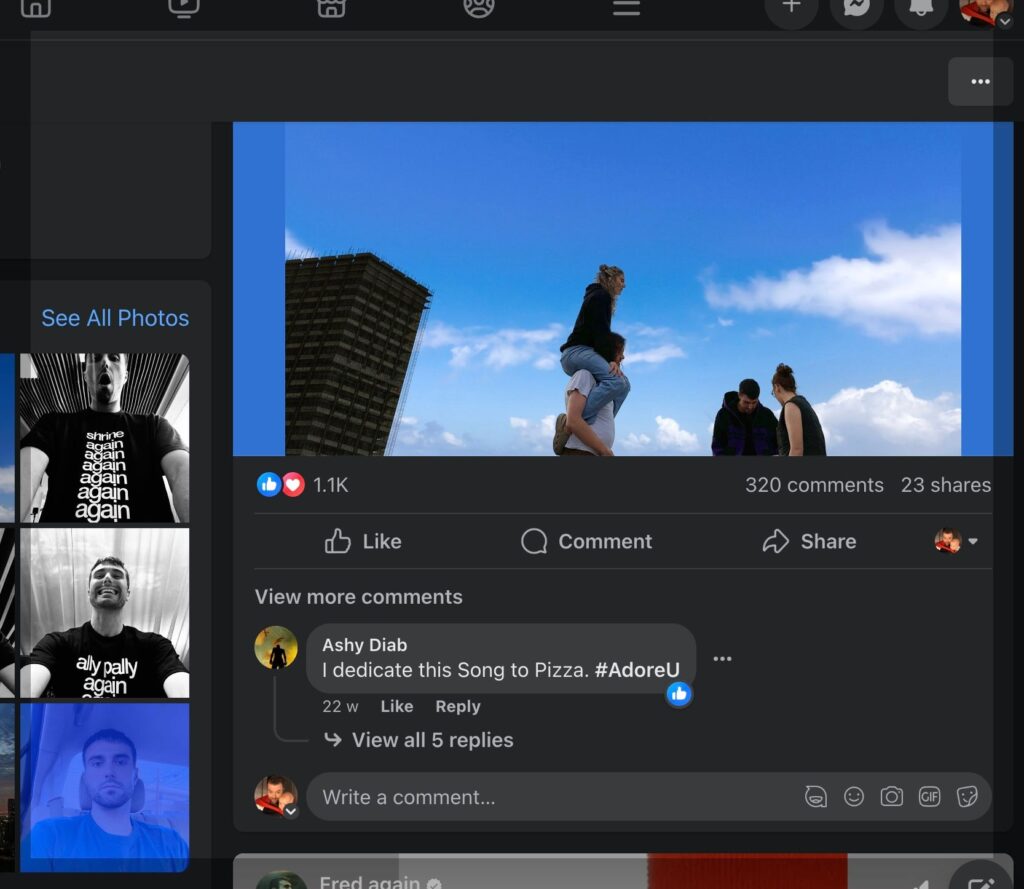Welcome to the cosy web.
Social media is well established as the forum for brands to communicate with fans. But social media is losing its appeal, driving people to connect with each other in private, niche, safe spaces. Dubbed ‘the cosy web’, these spaces may seem impenetrable to brands used to advertising and social and buying eyeballs. But here at Levellr we see first-hand that cosy web communities in fact offer a huge opportunity to music artists, sports teams and brands of all kinds.
The cosy era
One of the year’s big trends is a renewed desire for community, leading a shift from social to messaging apps like Discord, WhatsApp and Telegram. Time spent on social media declined in 2023 as people seek more meaningful interaction with each other away from the chaos of Insta and X. People are more interested in spending time in Discord’s dedicated communities or WhatsApp and Telegram group chats, away from adverts or arguments or random strangers.
In other words, we’re in the age of the cosy web, a term coined by Venkatesh Rao in 2019. It’s all about spaces where we can relax and be ourselves.
As Digiday points out in a recent article, if brands want to be where culture is happening, they either have to be part of these niche spaces or build their own.
Fortunately, that’s not only achievable – it’s essential. Here at Levellr, it’s what we do, building and managing communities for music labels and artists, sports teams and brands of all kinds. Nurturing a community pays off for brands, as engaged and loyal superfans drive tangible marketing and monetisation results from word-of-mouth to merch and ticket sales.
But why is this shift from social happening?
Social media has lost its shine
Apps like Instagram and Facebook have always been great for broadcasting to a mass audience – but there’s little value for the brand in the interaction that follows. Views and comments on a social media post may come from casual fans with little or no intention to meaningfully engage with the brand or artist, and no intention to spend on products, merch or tickets. Worse, they may even be bots or trolls.
Amid the crowd there will be dedicated fans who are engaged with the brand and whose intention could be converted into marketing or monetisation opportunities. But their social media comments are often hidden and easily lost in the scroll of irrelevance, argument and spam. That’s a huge wasted opportunity, as a small percentage of superfans spend a disproportionate amount of money on an artist or brand.

Social media often collapses and hides comments, making it harder to see conversations let alone join in.
Increasingly, fans retreat from the noise and seek out more meaningful conversations in spaces designed for real conversation. Twitter/X, Instagram and Facebook were founded on the ideal of authentic connection, but have become overwhelmed with adverts, insincere influencers and political division. On a more existential level, when facing stress and uncertainty a natural human reaction is to seek comfort and familiarity. A loss of faith in institutions also leads us to seek connection with our peers and people around us.
That means community. Group chats and dedicated spaces appeal to anyone seeking the simplicity and safety of neatly organised groups, often fine-tuned to comfortingly specific subjects.
Messaging apps like Discord and WhatsApp are specifically designed to host this kind of interaction. WhatsApp recognised the way people use the app, increasing the maximum number of members of a group not once but twice last year, up to 1024 people in a group chat. It also introduced a Community feature for large groups in your everyday life, like schools and sports clubs.
How do brands get involved?
With over two billion active users, WhatsApp is where people go to communicate. Major names are getting in on the action, and fans are responding: Real Madrid has 33 million followers on WhatsApp, Netflix over 30 million, and Bad Bunny 20 million.
For brands, it’s important to recognise why people are using these spaces. Superfans value authenticity and spot fakeness a mile off. A recent article in Elle described group chats as ‘watercooler, town square and village hall combined’, so genuine interaction is essential. Fans will be turned off by ads, one-way pronouncements from brands or heavy-handed monetisation. But they respond positively to authentic interactions with the artists they love, and they jump on exclusive opportunities and rewards.
Levellr client Starbucks is a brand fostering genuine community, building a space in Discord for members of its loyalty programme to share their stories and enjoy rewards. This is a great example of how brands can be part of community and lead the conversation without spooking fans.
And with Levellr’s community management expertise and simple but powerful tools, a brand is able to measure and monetise these private spaces much more effectively than social media.
The decline of social media and the coming of the cosy web may feel like a shift for brands, but it’s also a huge opportunity. Contact Levellr today to find out how you can build a community which works for your brand.
